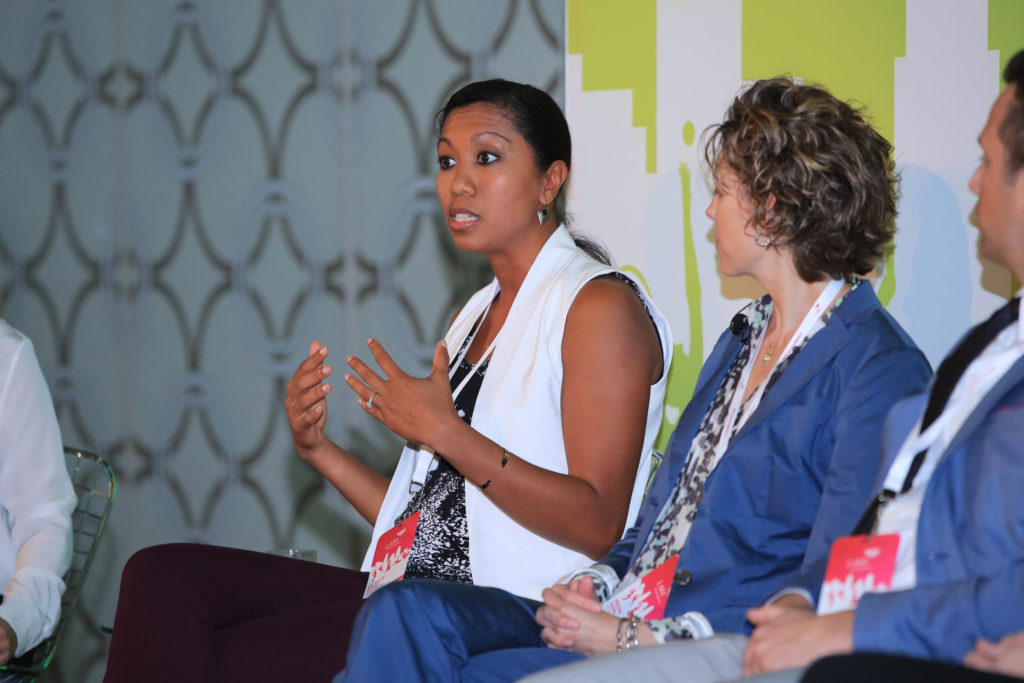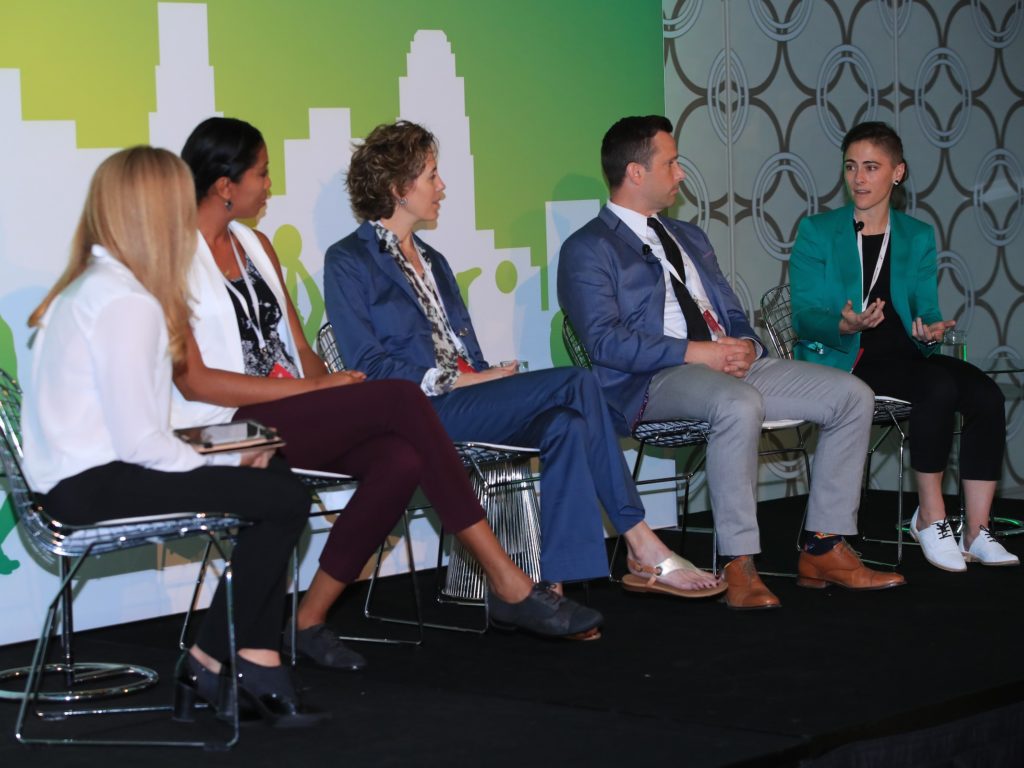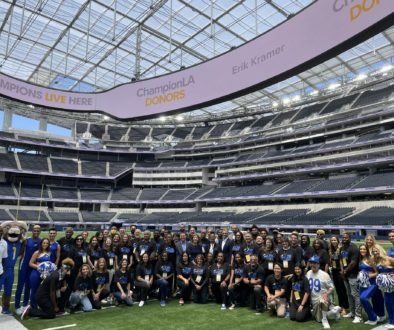2017 LA84 Summit Recap – Game Changers: Getting Women Coaches in the Game
By Michael Salmon
Panelists
Dr. Julie Shaw, Director of Education, Women’s Sports Foundation
Catherine Dávila, President, L.A. Villa F.C.
Megan Kahn, Executive Director, Alliance of Women Coaches
Rusty Smith, Three-time Olympian, Two-time Olympic Medalist
Moderator: Jennifer Ferro, President, KCRW
Ferro opened with a story of her own experience as an AYSO coach, and the fact that she almost always was the only woman on the field and was often made to feel like a “second-class citizen.”
One of the biggest reasons having female coaches and role models in youth sports is important is simple: visibility. “Girls have said that they would like to have women athletes just come out and talk to us. We just want to see them,” Dr. Shaw said. The mantra of ‘if you can see her, you can be her’ rings true, with girls needing adults who represent them.

Dávila seconded the notion that girls find it easier to identify with women coaches. “It’s modeling. Girls think ‘I can go there. I can do that,” Dávila said.
Changing Perceptions
Not only do girls benefit from female coaches, but young male athletes having a female coach can ingrain a sense of support, acceptance, and even advocacy for gender equity. Just ask speedskating Olympian and medalist Rusty Smith, whose first coach was his mother. “Women need to be seen coaching at the grass roots level,” Smith said. “Boys need to see that. If you are used to seeing [women leading] when you are five years old, you’ll be used to it when you are 40 years old.”
LEARN MORE: LA84, 400+ Attendees Celebrate Play For All Movement At 2017 LA84 Foundation Summit
While the desire for change exists, problems and barriers still remain in the coaching field. Dr. Shaw noted that even after coaching for 15 years, male and female athletes alike still questioned her abilities and harbored prejudices. “Men in coaching can yell at players and not be judged, whereas demonstrative female coaches have been referred to as b******,” Dr. Shaw said.
“But I tell my players that being strong on the court can transfer into being strong in other parts of like, like the boardroom. Don’t be afraid to raise your hand. Don’t be afraid to offer an opinion.”
Dávila added that she has encountered a ‘we like women coaches, but we want to win’ attitude from players and parents. “[They say] women coaches are about development, and operate with lower expectations,” Dávila said. “Parents have told me that I’m not passionate enough, and that I need to be “meaner” with the kids.”

Solutions
For Kahn, the most important step for women looked to coach is to simply try. “You don’t necessarily have to have played the game [to coach],” she said. “At the youth level, we’re not talking about Xs and Os. We’re talking about people being mentors and teaching life skills.”
Dr. Shaw added that when someone sees a woman or girl with leadership qualities, ask her if she has ever thought of being a coach. “Get her thinking about the possibility of it, because maybe they never have. And if someone is already a coach and sees potential, take the girl under wing and mentor her,” Dr. Shaw said.
READ MORE: 2016 LA84 Summit Recap: The Power of Girls Who Play
For Dávila, parents at the youth level can play a large part in keeping women out of coaching, especially with fathers. She notes the importance of clearing telling parents that there is one coach , and therefore one voice. Her final message to parents: “Youth sports are about the kids. Youth sports are not about you.”




